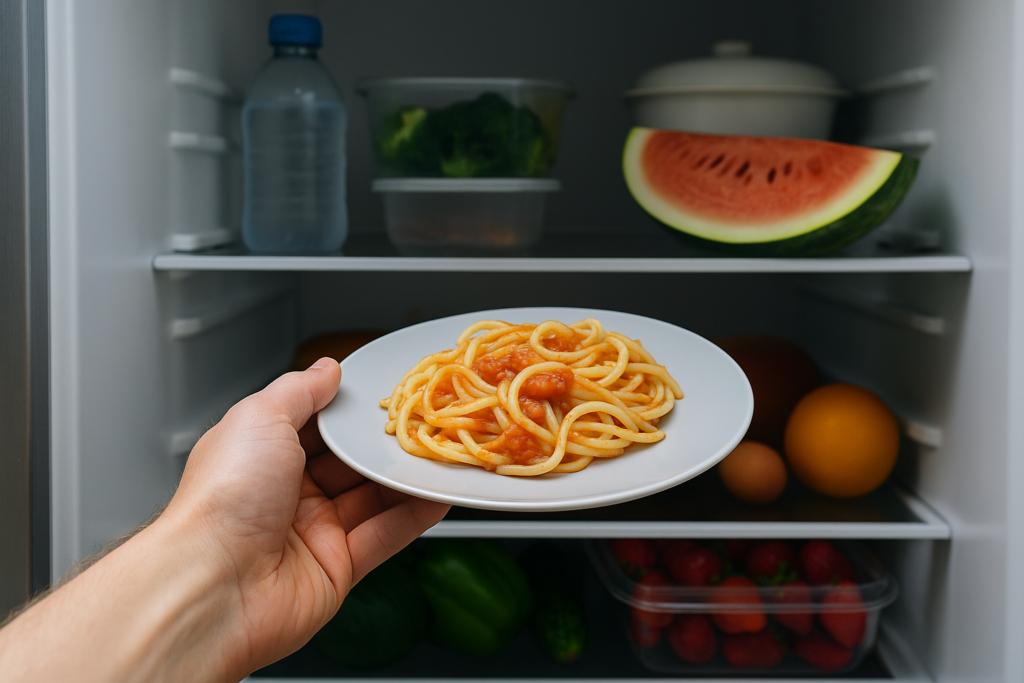In kitchens across urban India, the refrigerator has become an indispensable ally of convenience. Yet doctors and nutritionists are warning that the habit of eating food directly from the fridge — without reheating — carries health risks that many overlook.
More Than Just a Chill
While refrigeration slows bacterial growth, it does not eliminate it. Leftovers that appear visually fine may harbor harmful microbes, particularly when stored beyond recommended timelines. Physicians note that cold food can also irritate the throat and nasal passages, worsening conditions such as sore throats or sinus congestion.
Digestive Discomforts
Nutritionists say digestion suffers when food is consumed straight from the fridge. Cold temperatures can dull enzymatic activity in the gut, leading to bloating, indigestion, and abdominal discomfort. “The body has to expend extra energy to bring food to core temperature, which can strain sensitive digestive systems,” explained one dietician.
Nutritional Loss Over Time
Beyond immediate discomfort, cold storage affects the nutritional profile of food. Vitamins and antioxidants degrade over prolonged refrigeration, reducing the health value of fruits, vegetables, and cooked meals. Experts stress that the nutritional promise of a meal often diminishes by the time it is eaten days later.
Safer Practices at Home
Public health experts recommend letting food reach room temperature naturally or reheating it thoroughly before eating. Leftovers, they advise, should be consumed within three to four days, properly covered, and labeled with storage dates. For households that depend heavily on refrigeration, these small steps could guard against a range of preventable illnesses.


